Rotary Club of Claremont honors Sylvia Whitlock
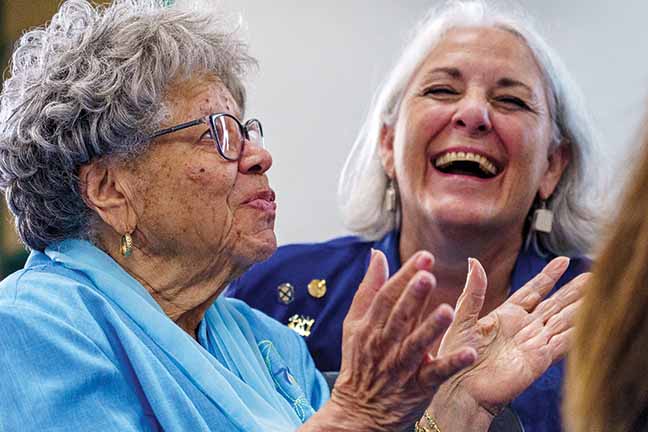
Sylvia Whitlock, left, and Bernadette Kendall react to a standing ovation after Whitlock was honored at a recent Rotary Club of Claremont event. Courier photo/Peter Weinberger
By Buff Wright | Special to the Courier
Sylvia Whitlock was honored for her long service at the Rotary Club of Claremont’s July 21 meeting. The club presented Sylvia with a replica of an engraved stone in her name to be placed at the Paul P. Harris (founder of Rotary International) Memorial at Mount Hope Cemetery in Chicago. The stone will be placed on the presidential walkway where Rotarian luminaries, like her, are honored.
The club also gave Whitlock a standing ovation to celebrate her courageous leadership and dedicated service for many years to our community, our region, and the world. As a Rotarian and an educator with a PhD in educational leadership from Claremont Graduate University, she touched the lives of countless persons in many walks of life.
Her Rotary story began in 1976 when Duarte Unified School District Superintendent and Rotary President Richard Key wanted to increase the size of his Rotary Club and knew professionals in his schools who would be good Rotarians. He invited educators MaryLou Elliott, Rosemary Freitag, and Donna Bogart to be members of the Duarte club despite the fact that Rotary’s membership was then male only. All three were listed with Rotary International by first initial only to avoid drawing attention to the fact that they were women. This rogue decision started a long organizational and legal battle to change Rotary bylaws to include women.
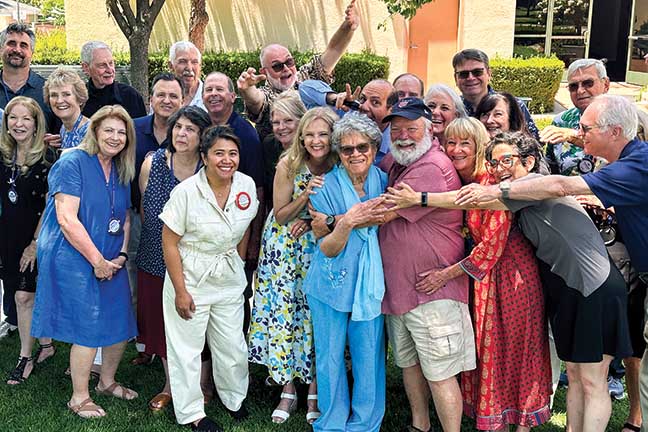
It was an afternoon of goodbyes — and a big group hug — as the Rotary Club of Claremont said goodbye recently to Sylvia Whitlock (front center, in sunglasses). Courier photo/Peter Weinberger
When Rotary International leadership became aware of the Duarte club’s admission of women at its 25th anniversary event in 1977, its reaction, as Whitlock reported in her 2015 book “Women Also Serve,” “went from surprise to disbelief to questioning to disbelief again and then to consternation as the women were introduced as Rotarians.” The club was given a choice: terminate its membership or to lose its club charter. The club voted to maintain the women’s membership and renamed itself the “Ex-Rotary Club of Duarte,” which it remained throughout 10 years of legal challenges in California courts and ultimately a US Supreme Court decision that required Rotary to change its bylaws.
Within a few years of the first three women’s appointment, Whitlock, an elementary school principal with a history of service, was asked to join the club.
She learned about service as a child in Jamaica, where her grandmother practiced “service above self” in her daily life. For many years Whitlock had given to United Way and donated blood to Red Cross, but “There was never a face on the beneficiaries,” she said. “The Rotary Club of Duarte gave me my first experience in identifying and meeting the needs of the community in which I worked.”
She enjoyed serving with the Ex-Rotary Club of Duarte and was club president elect in 1986 when the California Second District Court of Appeals ruling challenged the idea that private service clubs could determine their own membership. The court’s decision stressed that service clubs such as Rotary (and Kiwanis and Lions) also serve as business networking clubs, thus, excluding women from that business opportunity is discriminatory. But Rotary International appealed the decision to the United States Supreme Court, effectively blocking its implementation, so Whitlock still wasn’t an official Rotarian.
Just four months later, on May 4, 1987, the Supreme Court decided Rotary International must allow women in its organization, a ruling that extended the California decision to the rest of the country. This made Whitlock the world’s first female president of a Rotary Club. She arrived at school that morning to a bevy of reporters and TV cameras. It was big news!
While she insists she was simply in the right position at the right time, she has been a superb representative of Rotary and Rotary women. Over the past five decades she has served the mission of Rotary (the last 19 years as a member of Claremont Rotary) here and abroad. She was District 5300 Governor in 2012-13 (covering 59 clubs in Southern California and Nevada), and eventually served on the same Rotary International Council on Legislation that had once voted to exclude women.
She has continuously encouraged women around the world, including her friend, 2022-23 Rotary International President Jennifer Jones, to follow in her footsteps.
Buff Wright is a past president of Claremont Rotary.



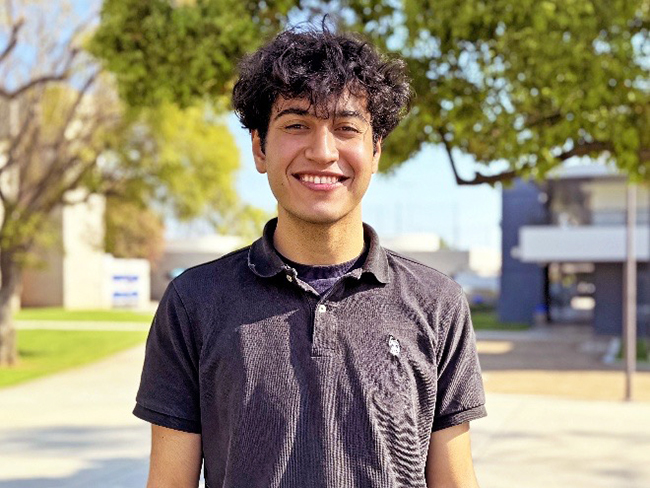
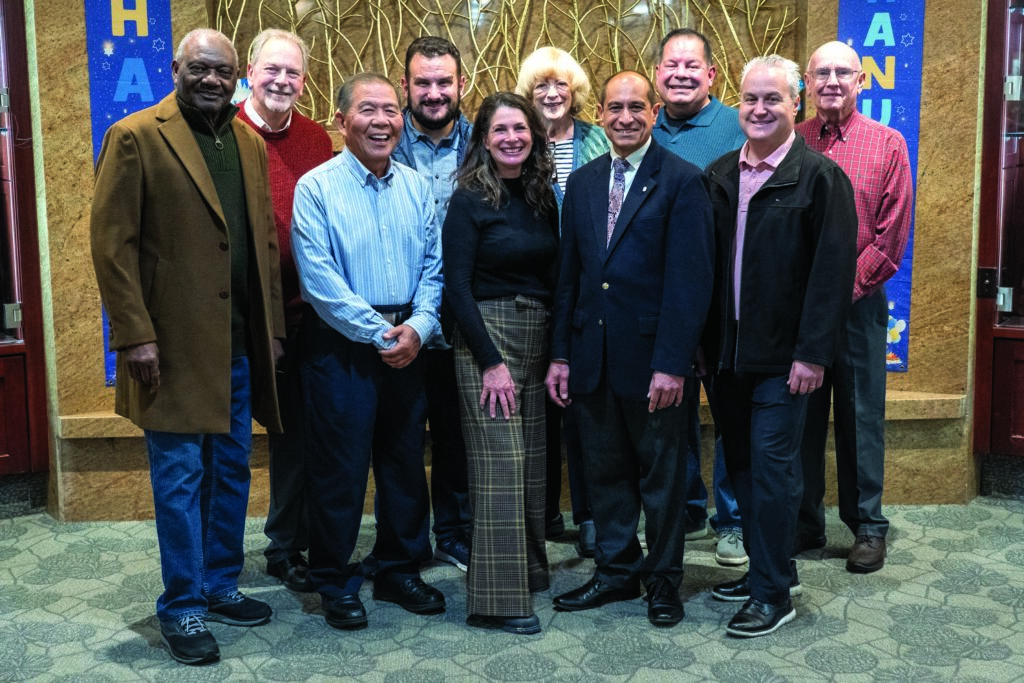

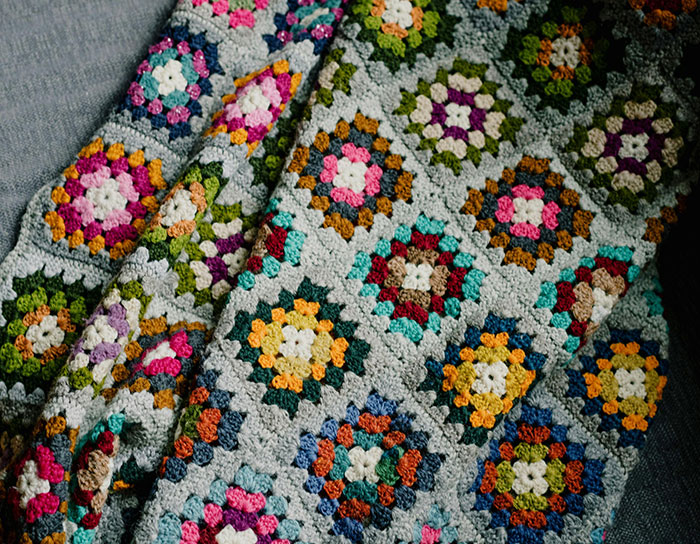
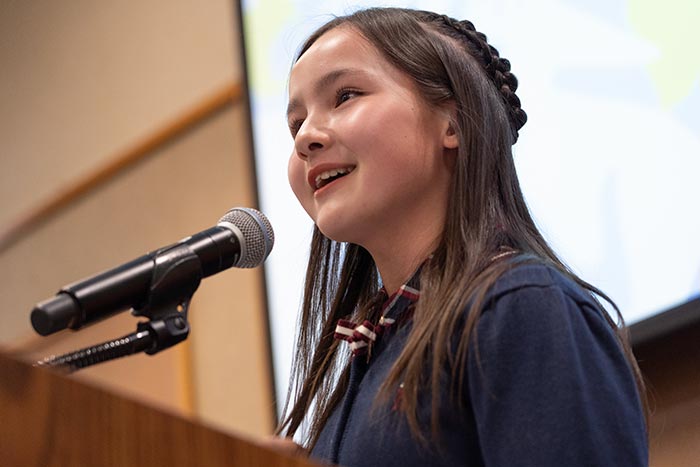


0 Comments